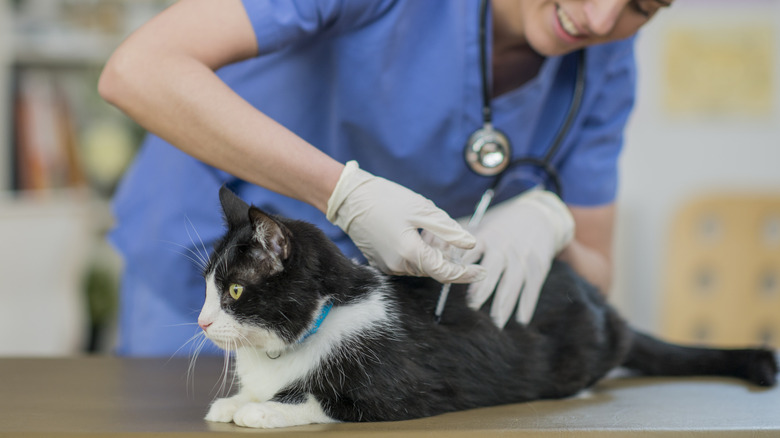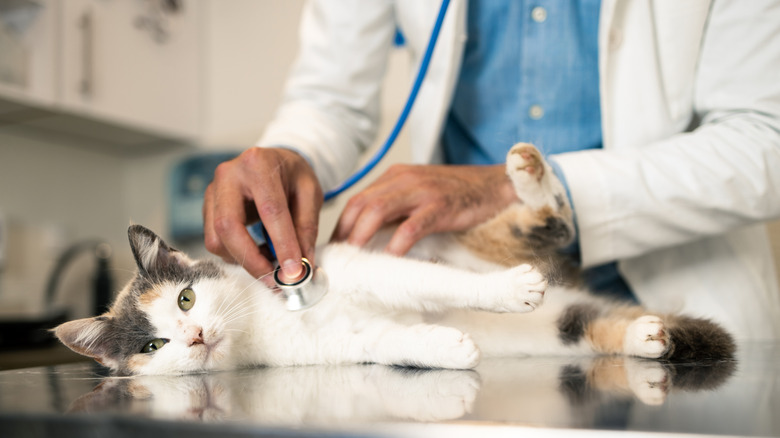Check Your Cat After Vaccinations For These Signs Of A Bad Reaction
Just as with human vaccines, pet vaccines protect against various viruses and diseases. They're crucial to pets' overall health and can even save their lives from illnesses like rabies and distemper (there's a difference!), but that doesn't mean they're entirely safe. Cats and other animals can react to vaccines in different ways, some of which are more serious than others. As such, if your feline friend has an upcoming vaccination appointment, it's important to know the signs of a bad reaction. Some cats experience localized or whole-body reactions, some of which can be life-threatening.
Your veterinarian might present some of these possible complications either by discussing them with you or giving you a printout to read at home. Either way, feel free to ask about vaccine risks for cats and the best course of action you should take in case your pet has a bad reaction. You should also ask what emergency veterinary location they recommend in case something happens after hours.
Cats' vaccine reactions can range from mild to severe
Some of the most common vaccine reactions occur at the injection site, including pain, swelling, redness, and even a small bout of hair loss in some cases. Veterinarians typically consider these localized reactions normal and mild. In fact, they're among the most common side effects of the rabies vaccine in cats, and they usually resolve on their own within a few days. If they don't, contact your veterinarian with your concerns. Still, what's even more concerning are the moderate and severe reactions.
Some vaccine responses affect areas beyond the injection site. Your cat could experience more moderate vaccine responses like lethargy, decreased appetite, fever, persistent vomiting or diarrhea, or facial swelling. In rare but serious cases, a cat may even develop anaphylaxis, a life-threatening allergic reaction that requires immediate veterinary care. Signs of this response include collapse, itching, difficulty breathing, or seizures (or any combination of these symptoms).
Remember, serious feline vaccine reactions aren't the norm, so don't let the potential risks discourage you from having your cat vaccinated and protected. Just be sure to monitor your feline friend closely after its visit for mild, moderate, and severe reactions. When in doubt, contact your veterinarian to determine if they recommend further evaluation or treatment. Unsure who to call? Learn when to go to an emergency vet vs. a vet clinic.
Always consult your veterinarian before making changes to your pet's diet, exercise, or care. To find an accredited veterinarian in your area, you can search the American Animal Hospital Association's online database.

